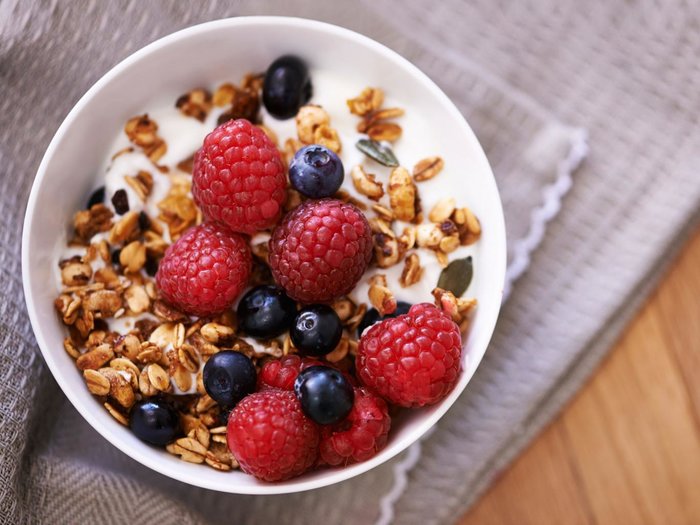How `diet` and `low fat` foods can be bad for your health

Here are 5 ways that diet and low-fat foods can in fact be harmful.
They change how you think about food
A recent study found that foods marketed as “healthy" can lead to weight gain, as people perceive them as less filling, and therefore eat more of it.
The study published in the `Journal of the Association for Consumer Research` found that people subconsciously believed that food marketed as healthy, rather than unhealthy, was less filling.
Low-fat, but full of sugar
Manufacturers have responded to fears surrounding studies which show that saturated and hydrogenated fats can cause high cholesterol and heart disease by cutting the substance from food. But they have also have increased the amount of sugar in products so they continue to taste pleasant.
An investigation by The Telegraph in 2014 found that many low fat foods which are marketed as healthier options contained more sugar that full-fat equivalents.
An analysis of 100 products showed that dozens contained at least two teaspoons of sugar in one serving.
Margarine vs butter
The yellow spread is often chosen above butter as the healthy option, but studies show that it can be harmful.
Research by Canadian scientists published in The BMJ last year suggested that saturated fats such, such as those in butter and cheese, does not cause heart disease, stroke or diabetes. However, trans fats, which can be in margarine, were linked to these diseases.
But saturated fat wasn’t let off entirely, as researchers warned that consuming it in high levels increases the risk of obesity and the conditions associated with it, the NHS website warned at the time.
Sorry, but granola is a lie…
Oats, raisins and dried fruit: what could go wrong? But the truth is that granola can be packed with sugar.
"Most granolas are classified as high sugar, with more than 12.5g of sugar per 100g, much of which has been deliberately added to make it taste more palatable than the granola once found in health food shops," Anna Raymond, dietician and spokesperson for the British Dietetic Association, told the Mail on Sunday.
She also warned that honey is also a sugar and is “no more healthy.”
…and so are cereal bars
Cereal bars are guilty of a similar crime to granola. While they may be advertised as low-fat or low in calories, they are often high in sugar.
A study by Which? in 2012 found that all but one of 30 popular bars were high in the white stuff, with more than half containing over 30 per cent sugar.
Which? executive director Richard Lloyd said at the time, according to BBC News: "People often choose cereal bars in the belief they`re healthier than chocolate or biscuits, but our research shows this can be a myth."















































